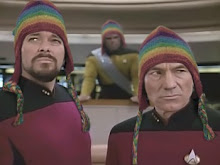In Africa there was no electricity, no running water, no diapers. There wasn't much there, coming from an American's point of view. The child was often shown chewing on rocks or bones. There wasn't much of a sanitary situation going on there. In Mongolia it was a little better. The child was raised in a house, but the mother washed him but putting water in her mouth and spitting it out on him. In America and Japan, the mothers were in hospitals when they gave birth and had overall, very clean practices with their children. What looked universal throughout the film is that mothers are a huge part of the children's life. They are responsible for raising the children and being there for them when the children need them. The fathers are supposed to be there too, but it is mainly the mother's job. The children feel more connected to her, at least through out the film, that's how it looked.
All of the families and cultures are very different. There would be no way that one child could move to another culture, especially when they are so young. The Japanese or American child would never be used to the outdoors or the animals or the lack of common utilities in Mongolia and Africa, and the Mongolian or African child would never be used to the confinements of America or Japan and all of the new technologies that they have. They are all accustomed to their own environment and to change it would to flip their world upside down. These children aren't meant to experience other cultures just yet. They need to be able to grow up a little in their own first. It may be a bad way to look at something, but i think that developing roots is good because it gives you something to always go home to. They are only babies, but they will grow up eventually, and its the type of environment and parenting that they have that will make them who they are. That's what i think the entire point of the movie is.

No comments:
Post a Comment